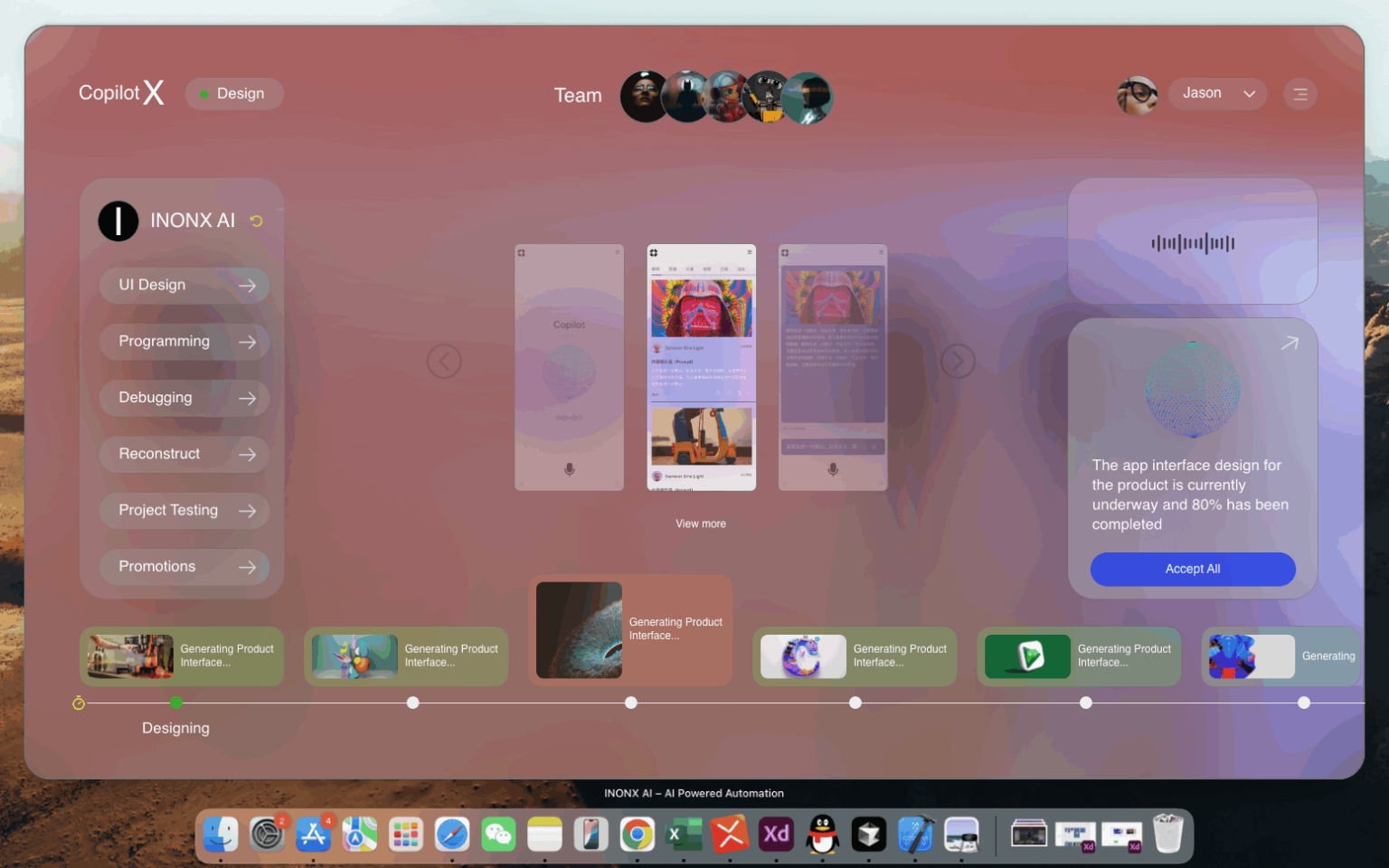In today’s rapidly evolving business landscape, the integration of artificial intelligence (AI) into operations and digital transformation strategies has become a pivotal trend. Companies across various industries are leveraging AI to streamline processes, enhance decision-making, and drive innovation. This article explores the latest trends in AI applications, solutions for effective implementation, and real-world use cases that highlight the transformative power of AI in operations and strategic planning.
.
**The Rise of AI in Operations: Trends and Innovations**
AI technologies are reshaping how organizations operate, enabling them to optimize workflows and improve efficiency. One of the most significant trends is the adoption of AI-driven automation tools. These tools can analyze vast amounts of data, identify patterns, and automate routine tasks, freeing up human resources for more strategic activities. According to a report by McKinsey, organizations that implement AI in their operations can increase productivity by up to 40% (McKinsey, 2023).
.
Another trend is the use of AI for predictive analytics. Businesses are increasingly relying on AI algorithms to forecast demand, manage inventory, and anticipate market changes. For example, retailers use AI to analyze customer behavior and predict purchasing trends, allowing them to optimize stock levels and reduce waste. This capability not only enhances operational efficiency but also improves customer satisfaction by ensuring that products are available when needed.
.
**AI in Digital Transformation: A Catalyst for Change**
Digital transformation is no longer a buzzword; it is a necessity for survival in today’s competitive market. AI plays a crucial role in this transformation by enabling organizations to leverage data-driven insights for strategic decision-making. Companies are now using AI to enhance customer experiences, improve service delivery, and create personalized marketing strategies.
.
For instance, AI-powered chatbots are revolutionizing customer service by providing instant responses to queries, thereby improving customer engagement and satisfaction. These chatbots utilize natural language processing (NLP) to understand and respond to customer inquiries in real-time, significantly reducing response times and operational costs. According to a study by Gartner, by 2025, 75% of customer service interactions will be powered by AI (Gartner, 2022).
.
Moreover, AI is facilitating the development of smart products and services. Organizations are integrating AI into their offerings to provide enhanced features and functionalities. For example, automotive companies are incorporating AI into their vehicles for features like autonomous driving and predictive maintenance, thereby transforming the automotive industry.
.
**AI-Powered Strategic Planning: Enhancing Decision-Making**
Strategic planning is critical for any organization aiming for long-term success. AI is emerging as a powerful tool in this domain, providing insights that enable better decision-making. By analyzing historical data, market trends, and competitive landscapes, AI can help organizations identify opportunities and threats, allowing them to formulate effective strategies.
.
One of the key applications of AI in strategic planning is scenario analysis. AI algorithms can simulate various business scenarios based on different variables, helping organizations understand potential outcomes and make informed decisions. This capability is particularly valuable in uncertain environments, where traditional forecasting methods may fall short.
.
Furthermore, AI can assist in resource allocation and optimization. By analyzing data on employee performance, project timelines, and budget constraints, AI can recommend the most effective allocation of resources, ensuring that organizations maximize their investments. This strategic approach not only enhances operational efficiency but also drives innovation by enabling teams to focus on high-impact projects.
.
**Industry Applications: Real-World Use Cases of AI in Operations and Digital Transformation**
The application of AI in operations and digital transformation is evident across various industries. In manufacturing, for instance, companies are using AI for predictive maintenance, which helps reduce downtime and lower maintenance costs. By analyzing data from machinery sensors, AI can predict equipment failures before they occur, allowing for timely interventions.
.
In the healthcare sector, AI is being utilized to improve patient outcomes and streamline operations. Hospitals are implementing AI-driven diagnostic tools that analyze medical images and patient data to assist healthcare professionals in making accurate diagnoses. This not only enhances the quality of care but also reduces the time spent on administrative tasks.
.
Retailers are also harnessing AI to enhance their operations. For example, companies like Amazon are using AI algorithms to optimize supply chain logistics, ensuring that products are delivered to customers efficiently. AI-driven recommendation engines analyze customer preferences and purchasing behavior, allowing retailers to provide personalized shopping experiences that drive sales.
.
**Technical Insights: Implementing AI in Operations and Digital Transformation**
Successful implementation of AI in operations and digital transformation requires a strategic approach. Organizations must first identify the specific challenges they aim to address with AI. This involves conducting a thorough assessment of existing processes and determining where AI can add the most value.
.
Data quality is another critical factor in AI implementation. Organizations must ensure that they have access to accurate, relevant, and timely data to train AI models effectively. This may involve investing in data management systems and establishing robust data governance practices.
.
Additionally, organizations should foster a culture of innovation and collaboration. Encouraging cross-functional teams to work together on AI initiatives can lead to more creative solutions and better outcomes. Training employees on AI technologies and their applications is also essential to ensure that teams are equipped to leverage AI effectively.
.
**Conclusion: The Future of AI in Operations and Digital Transformation**
As AI continues to evolve, its impact on operations and digital transformation will only grow. Organizations that embrace AI technologies will be better positioned to navigate the complexities of the modern business landscape. By leveraging AI for operational efficiency, enhanced customer experiences, and data-driven strategic planning, companies can drive innovation and achieve sustainable growth.
.
In conclusion, the integration of AI into operations and digital transformation is not just a trend; it is a fundamental shift that is reshaping industries. Companies that recognize the potential of AI and invest in its implementation will gain a competitive edge, ensuring their success in an increasingly digital world.
.
**References**
1. McKinsey & Company. (2023). The State of AI in 2023: Trends and Insights.
2. Gartner. (2022). Predicts 2025: The Future of Customer Service.

























